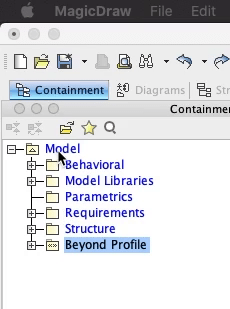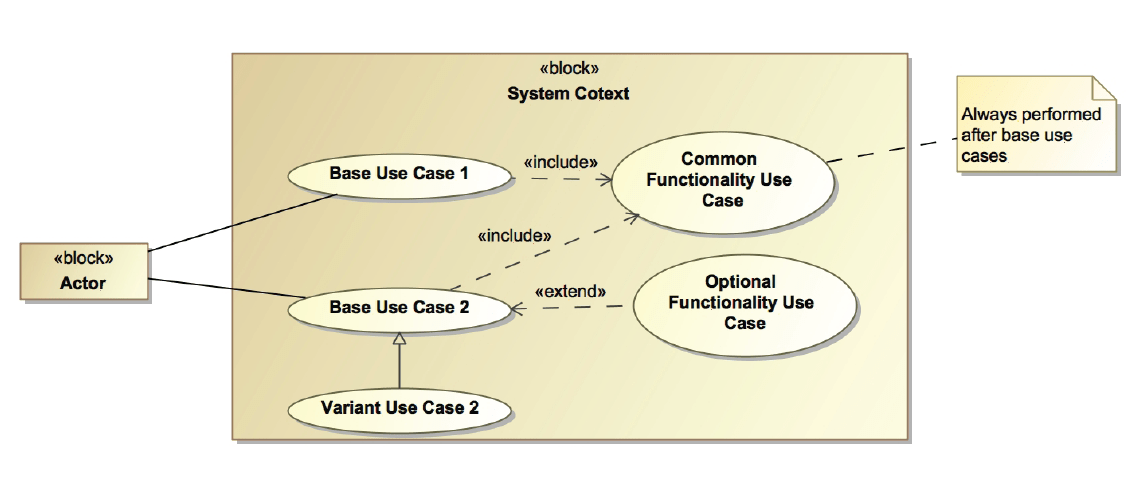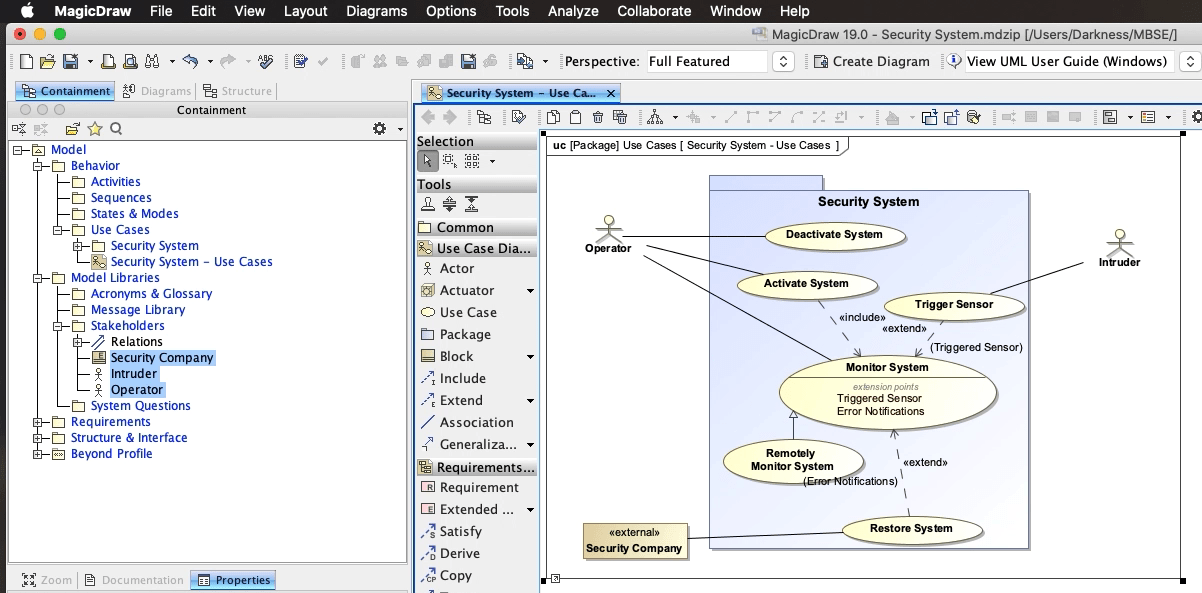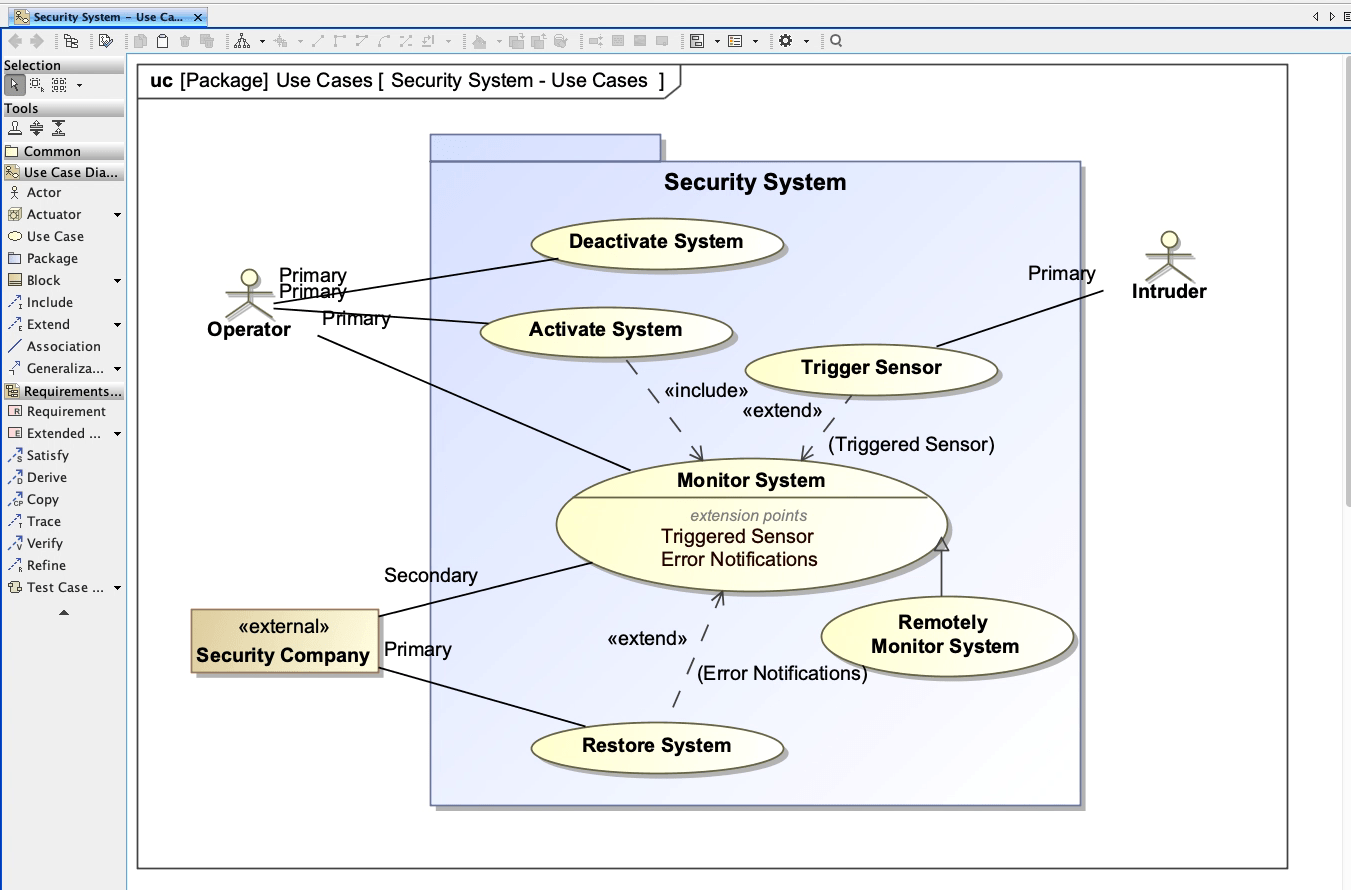This MBSE 101 series provides foundational information on how to approach using system architecture models to design and build a system. Join us as we walk through the development of a Security Alarm System!
-
Model Organization
Model Organization Model Organization is important as it can affect the performance of system architecture models. The organizational structure should be discussed and developed prior to creating any elements within
-
Creating Package Diagrams
Creating Package Diagrams What if we had to share what our model organization was to a manager who doesn’t understand MBSE? Or maybe we want to quickly bring new modeling
-
What Are Use Cases?
Use Cases are an initial step in the system development process to help define the behavior of a system or program. This is generally accomplished by eliciting stakeholders about their
-
Implementing Use Cases
Implementing Use Cases can help with understanding the expected functionality for your stakeholders. This is especially helpful in a situation where you are asked to come up with a concept
-
Creating Use Case Roles
Creating Use Case Roles can help describe actor initiated interactions with a system by identifying their role as either Primary, Secondary or Stakeholder. Primary actors are using the system to
-
Hierarchal Structures With Block Definition Diagrams
How do we create a hierarchal structures in our model? One approach is with the use of block definition diagrams! These diagrams are great as they are used at any
active validation activities activity activity diagram actor advanced architecture modeling automation behavior block definition diagrams blocks cameo component model element containment structure engineering failure modes and effects analysis fmea functions hierarchal structure hierarchy internal block diagrams lifelines magicdraw mbse mbse pillars openapi package diagrams packages profiles requirement relationships requirements requirements creation requirements management schema sequence diagram sequences state machine diagrams stereotype structure sysml system architecture system model use case diagrams use cases why mbse
MBSE 101: Why is MBSE Important?
With these 3 pillars we can now develop a model that will support a system design from concept to deployment! So why is MBSE important?
MBSE is important because by developing a system with a ‘single source of truth’ approach engineering development gains efficiency. This can be in the form of time, cost or risk. Let’s think about an example.
Say we are working on the next generation hypersonic commercial plane. Our mechanical engineers decide that the control flaps require a different type of motor. This motor will most likely have different power requirements and maybe the control software needs to updated as well.
This is information that our electrical and software engineers will need to know. If we used documents to share this information, it may be a few months before our engineers understand the impacts of the mechanical changes taking place. This information is relayed quicker in a modeling environment and creates more meaningful engineering discussions!






